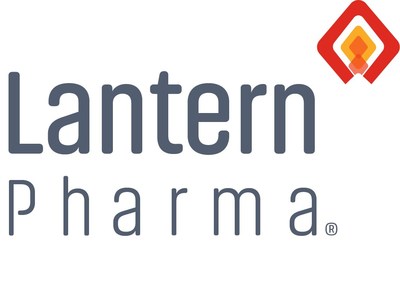Lantern Pharma Announces Collaboration & Research Agreement with The Danish Cancer Society Research Center to Support Clinical Development of Drug Candidates, LP-100 and LP-184, in Solid Tumors
Lantern Pharma (NASDAQ: LTRN) announced a collaboration with The Danish Cancer Society Research Center to advance clinical development of its drug candidates, LP-100 and LP-184. This partnership aims to enhance diagnostic methods for identifying NER-deficient tumors. The collaboration will leverage Lantern's RADR® AI platform, potentially adding millions of data points and expediting cancer treatment discovery. Both LP-100 and LP-184 have shown promise in targeting NER deficiencies, with LP-100 currently in a phase 2 trial for metastatic prostate cancer, showing improved overall survival rates.
- Collaboration with The Danish Cancer Society Research Center expected to enhance clinical development of LP-100 and LP-184.
- RADR® AI platform set to gain millions of data points, improving drug discovery efficiency.
- LP-100 in phase 2 trial for metastatic prostate cancer showing median overall survival of 12.5 months.
- Limited initial enrollment of 9 out of a targeted 27 patients in the LP-100 trial indicates potential challenges in recruitment.
Insights
Analyzing...
DALLAS, Jan. 18, 2022 /PRNewswire/ -- Lantern Pharma (NASDAQ: LTRN), a clinical stage biopharmaceutical company using its proprietary RADR® artificial intelligence ("A.I.") platform to transform the cost, pace, and timeline of oncology drug discovery and development, today announced a collaboration and research agreement with The Danish Cancer Society Research Center (DCRC) to support clinical development of Lantern's acylfulvene class drug candidates, LP-100 and LP-184, as well as the development of improved diagnostic methods to identify nucleotide excision repair (NER) deficient tumors. LP-100 and LP-184 have both shown synthetically lethal impact in tumors that are lacking NER capabilities. The DCRC is a cancer research institute within the Danish Cancer Society. The Danish Cancer Society is Denmark's largest non-government organization and dedicates more than
The overall aim of the collaboration is to determine the most promising patient populations for future LP-100 (irofulven) and LP-184 therapy. The collaboration will focus on developing improved diagnostic tools to detect NER deficiency patient profiles more accurately. The research study conducted as part of the collaboration will use expanded mutational signature-based analyses to achieve this objective. The study will include a comprehensive analysis of breast, ovarian, prostate, lung, kidney, bladder, stomach, pancreatic and esophageal cancer. This collaboration will help determine how many patients and which patients can benefit for targeting NER deficiency and also help assess the overall market size for both LP-100 and LP-184 across multiple solid tumors.
"Inherent DNA repair deficiencies characterize a subset of many of our common tumor types and are increasingly relevant as markers of therapeutic responses. The focus on defining NER deficiencies as a potential marker for irofulven use is in line with our strategies on drug repurposing as well as personalized oncology," says Mef Nilbert, medical oncologist and research director at the DCRC.
The collaboration research will be led by Dr. Zoltan Szallasi, MD as principal investigator at DCRC. Dr. Szallasi serves joint appointments as Group Leader of the Translational Cancer Genomics department at DCRC and as Faculty, Computational Health Informatics Program (CHIP) and Assistant Professor of Pediatrics at Boston Children's Hospital affiliated with Harvard Medical School.
"Through our breakthrough approach of collaborating with internationally recognized research centers such as DCRC, we are able to leverage and grow our proprietary RADR® A.I. platform with millions of additional data points to further our ability to rapidly discover biomarker signatures aimed at helping identify patients more likely to respond to cancer therapies, which we believe will significantly reduce development timelines and cost of treatment," commented Panna Sharma, CEO and President of Lantern Pharma Inc. "We are assembling a growing body of data supporting LP-184 and LP-100's synthetic lethality to tumor cells with either NER or HR deficiency, and our collaboration with DCRC will further accelerate our path to clinical trials as well as provide opportunities for new trials and additional targeted indications."
LP-184 is a DNA-damaging small molecule drug candidate currently in preclinical development for certain genomically defined solid tumors, including pancreatic cancer and glioblastoma. As a next-generation acylfulvene class agent that preferentially damages DNA in cancer cells overexpressing certain biomarkers, LP-184 has the potential to be used as both monotherapy as well as a synergistic agent in combination with other drugs. LP-184 has been granted Orphan Drug Designation by the U.S. Food and Drug Administration for the treatment of malignant gliomas, as well as pancreatic cancer.
LP-100 exploits cancer cells' deficiency in DNA repair mechanisms. LP-100 has the potential to be an important compound — either as monotherapy or in combination — for several challenging cancers that are impacting patients globally. LP-100 is in an existing genomic-signature guided phase 2 clinical trial in Denmark for patients with metastatic castration resistant prostate cancer (mCRPC). 9 patients (out of a targeted enrollment of 27) have been treated in the trial. The median overall survival (OS) for the initial group of 9 patients has been approximately 12.5 months, which is an improvement over other similar fourth-line treatment regimens for mCRPC.
About Lantern Pharma
Lantern Pharma (NASDAQ: LTRN) is a clinical-stage oncology-focused biopharmaceutical company leveraging its proprietary RADR® A.I. platform and machine learning to discover biomarker signatures that identify patients most likely to respond to its pipeline of genomically targeted therapeutics. Lantern is currently developing four drug candidates and an ADC program across eight disclosed tumor targets, including two phase 2 programs. By targeting drugs to patients whose genomic profile identifies them as having the highest probability of benefiting from the drug, Lantern's approach represents the potential to deliver best-in-class outcomes. More information is available at: www.lanternpharma.com and Twitter @lanternpharma.
About RADR®
RADR®, or Response Algorithm for Drug Positioning & Rescue, is Lantern's proprietary integrated A.I. platform for large-scale biomarker and drug-tumor interaction data analytics that leverages machine-learning. RADR® is used to provide mechanistic insights about drug-tumor interactions, predict the potential response of cancer types and subtypes to existing drugs and drug candidates, and uncover patient groups that may respond to potential therapies being developed by Lantern and its collaborators.
Forward-looking Statements
This press release contains forward-looking statements within the meaning of Section 27A of the Securities Act of 1933, as amended, and Section 21E of the Securities Exchange Act of 1934, as amended. These forward-looking statements include, among other things, statements relating to: future events or our future financial performance; the potential advantages of our RADR® platform in identifying drug candidates and patient populations that are likely to respond to a drug candidate; our strategic plans to advance the development of our drug candidates and antibody drug conjugate (ADC) development program; estimates regarding the development timing for our drug candidates and ADC development program; our research and development efforts of our internal drug discovery programs and the utilization of our RADR® platform to streamline the drug development process; our intention to leverage artificial intelligence, machine learning and genomic data to streamline and transform the pace, risk and cost of oncology drug discovery and development and to identify patient populations that would likely respond to a drug candidate; estimates regarding potential markets and potential market sizes; sales estimates for our drug candidates and our plans to discover and develop drug candidates and to maximize their commercial potential by advancing such drug candidates ourselves or in collaboration with others. Any statements that are not statements of historical fact (including, without limitation, statements that use words such as "anticipate," "believe," "contemplate," "could," "estimate," "expect," "intend," "seek," "may," "might," "plan," "potential," "predict," "project," "target," "objective," "aim," "upcoming," "should," "will," "would," or the negative of these words or other similar expressions) should be considered forward-looking statements. There are a number of important factors that could cause our actual results to differ materially from those indicated by the forward-looking statements, such as (i) the impact of the COVID-19 pandemic, (ii) the risk that our research and the research of our collaborators may not be successful, (iii) the risk that none of our product candidates has received FDA marketing approval, and we may not be able to successfully initiate, conduct, or conclude clinical testing for or obtain marketing approval for our product candidates, (iv) the risk that no drug product based on our proprietary RADR A.I. platform has received FDA marketing approval or otherwise been incorporated into a commercial product, and (v) those other factors set forth in the Risk Factors section in our Annual Report on Form 10-K for the year ended December 31, 2020, filed with the Securities and Exchange Commission on March 10, 2021. You may access our Annual Report on Form 10-K for the year ended December 31, 2020 under the investor SEC filings tab of our website at www.lanternpharma.com or on the SEC's website at www.sec.gov. Given these risks and uncertainties, we can give no assurances that our forward-looking statements will prove to be accurate, or that any other results or events projected or contemplated by our forward-looking statements will in fact occur, and we caution investors not to place undue reliance on these statements. All forward-looking statements in this press release represent our judgment as of the date hereof, and, except as otherwise required by law, we disclaim any obligation to update any forward-looking statements to conform the statement to actual results or changes in our expectations.
CONTACT
Investor Relations
Dave Gentry, RedChip Companies
IR@lanternpharma.com
1-800-733-2447
![]() View original content to download multimedia:https://www.prnewswire.com/news-releases/lantern-pharma-announces-collaboration--research-agreement-with-the-danish-cancer-society-research-center-to-support-clinical-development-of-drug-candidates-lp-100-and-lp-184-in-solid-tumors-301462613.html
View original content to download multimedia:https://www.prnewswire.com/news-releases/lantern-pharma-announces-collaboration--research-agreement-with-the-danish-cancer-society-research-center-to-support-clinical-development-of-drug-candidates-lp-100-and-lp-184-in-solid-tumors-301462613.html
SOURCE Lantern Pharma







